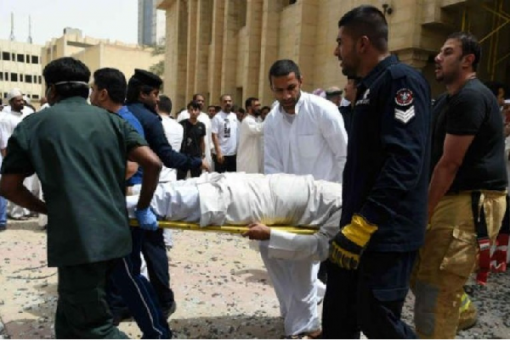
Three attacks across three continents in the cities of Sousse, Kuwait and Lyon reflect the intensity of the Islamic State war and augurs of more attacks to come.
An attack on the resort of Sousse in northern Tunisia on 26 June appears to have been aimed at western tourists, with as many as twenty-seven people killed. In Kuwait on the same day, around twenty-five people (and perhaps more) were killed in an assault on the Imam Sadiq mosque, a Shi'a centre. Islamic State may already have claimed responsibility for the Kuwait attack, and it is certainly the case that the movement has warned of an armed campaign during the fasting month of Ramadan. And near the French city of Lyon, an operation against a gas plant was contained after one person was decapitated.
It is unclear at present whether the Sousse, Kuwait and Lyon attacks are in any way coordinated. In the two years after 9/11 there were numerous attacks across the world that were blamed on the al-Qaida movement, with bombing and gun incidents in (for example) Indonesia, Pakistan, India, Yemen, Jordan, Egypt, Tunisia, Morocco, Turkey and Spain. Many of these were in fact launched by local groups operating at a remove from al-Qaida, though often content to be linked with Osama bin Laden and the leadership.
For western states, the targeting of the Air Products plant outside Lyon will cause particular concern. Air Products Inc is a large transnational company with 21,000 employees in over fifty countries, based in the United States with headquarters at Allentown in Pennsylvania. If it turns out that the Lyons operation is in any way connected with Islamic State this will fit with a long-established pattern of action against US interests abroad predating 9/11.
In the United States itself, fear of so-called “lone-wolf” attacks has been one of the reasons for the FBI to detain suspects rather than just maintain surveillance. The motive takes into account the failed attack on the conference in Garland, Texas, on 3 May, but also reflects a concern with the pace of progress in Iraq and Syria.
In turn this links to a factor that is very largely missing from any analysis of risks and threats of attack in western states, and indeed from almost all public discussion: namely, recognition of the sheer intensity of the war.
The Pentagon recently confirmed that there had been 15,600 air sorties against Islamic State since the air war began in August 2014, and that attacks by the US-led coalition were killing 1,000 paramilitaries every month.
It is impossible to say whether these casualty figures are accurate, including how many people are being injured or how many are civilians. But the blunt truth is that while thousands are being killed, mostly by western airstrikes and drone-attacks, this appears to have little effect on Islamic State. It loses some territory but promptly gains elsewhere; its supply of recruits from abroad is undiminished; and it purposefully promotes the message that its role is to protect Islam from "crusader" attack.
When attacks in Kuwait, Tunisia and France are put in this context, two conclusions follow. First, they are hardly surprising. Second, many more can be expected. These may well extend across all of the countries at war with Islamic State, not least Britain.
This article has been republished from Opendemocracy.net.